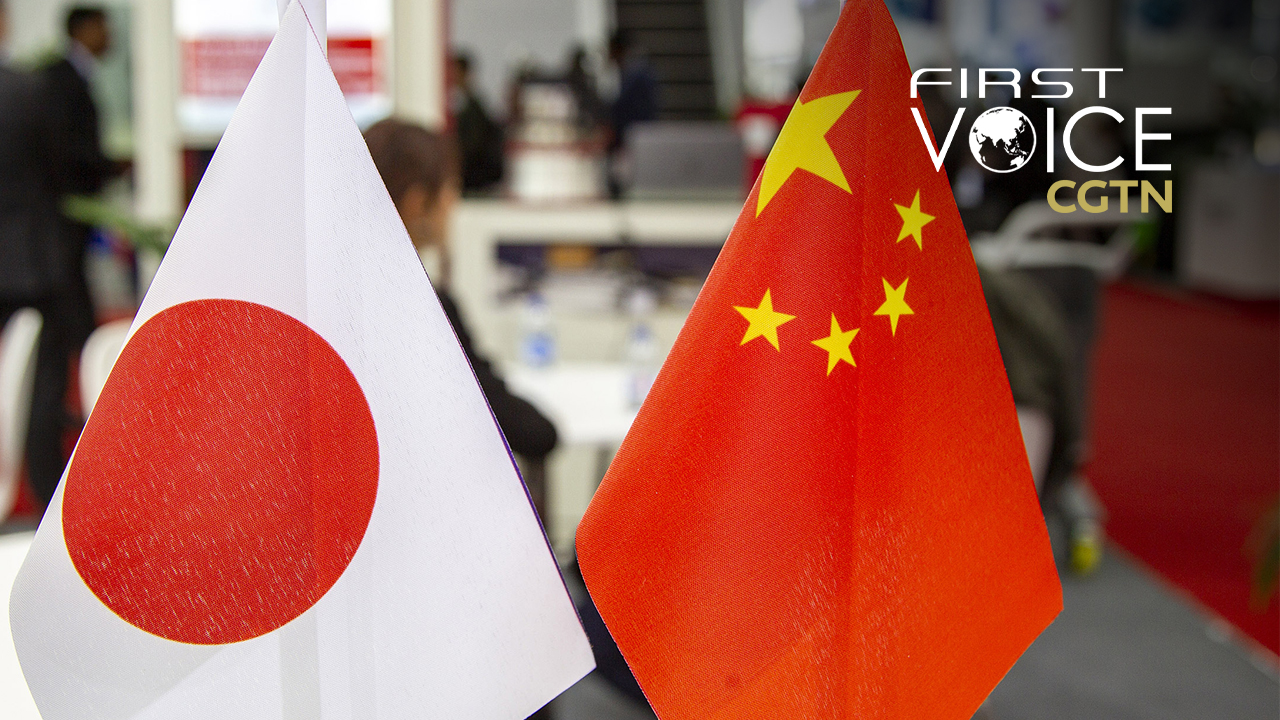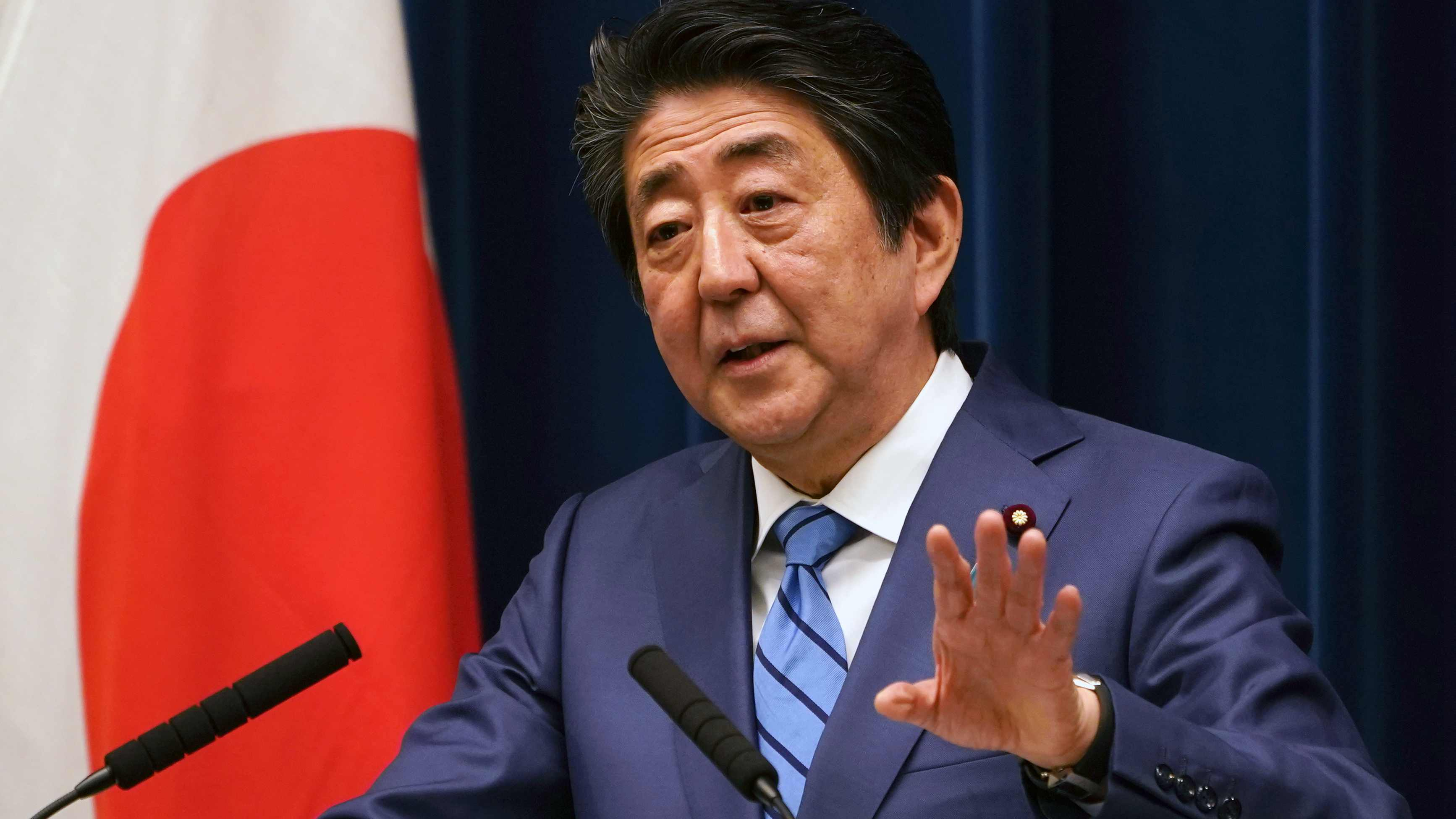
Editor's note: CGTN's First Voice provides instant commentary on breaking stories. The daily column clarifies emerging issues and better defines the news agenda, offering a Chinese perspective on the latest global events.
Japan's rightists are unable to resist the allure of a do-over of the nation's shameful imperial-era colonialism in the Taiwan region, but its people must remember the reason for the nation's Peace Constitution.
Japan's hawkish ex-prime minister Shinzo Abe has publicly warned that Japan would take action along with its ally U.S. if Taiwan is involved with a military crisis with the Chinese mainland.
Japan's famed Peace Constitution outlaws war as a means to settle international disputes, but Abe has made it a career-defining goal to try to reverse this limitation and bring Japan back to what rightists imagine as the country's former "glory."
This "glory" includes ruthless mass slaughter on prisoners of war and civilians, gruesome medical experiments on prisoners, organized mass rape and the use of slave labor in countries in East and Southeast Asia.
Rightists have long tried to minimize these atrocities and rewrite history books to cover up this shameful past instead of facing their wrongdoings head-on. Some have even played victims, especially on the atomic bombings of Hiroshima and Nagasaki, totally ignoring the reason why Japan was bombed by the United States. Abe's advocacy of military involvement in the Taiwan Straits is his latest maneuver to return to the "glorious" imperial past and marks a dangerous turn with painful historical echoes.
In a speech delivered via video to a meeting of separatists on China's island of Taiwan, Abe tried to make the case that the reunification of Taiwan and the Chinese mainland amounted to an existential threat to Japan. "A Taiwan emergency is a Japan emergency," Abe said. He also noted, "it's an emergency for the U.S.-Japan alliance as well."
In another sign of rising militarism, Japan's cabinet last week approved a $7 billion package of extra defense spending.

Japan's ex-prime minister Shinzo Abe. /AP
Japan's ex-prime minister Shinzo Abe. /AP
Japan's eagerness to shed the shackles of its Peace Constitution over the Taiwan region has particularly distressing historical resonances.
Japan colonized Taiwan from 1895 until the defeat of imperial rule in 1945, crushing armed resistance. The takeover of the Taiwan region was the first step in Japan's heartless and aggressive colonization of parts of China and Asia.
In this historical light, the current push by Japanese rightists to override the Peace Constitution to go to a potential war over the Taiwan region is particularly alarming and shows a willful blindness to the past.
However, Japan's nostalgic rightists seem stuck in the past and unaware that times have changed since 1895. At that time, China had been carved up by colonial powers who used divide and conquest tactics to set Chinese people against each other. China ruled by the Qing Dynasty then was technologically backward and economically weak. Today's China is an economic and technological powerhouse.
Abe, in his controversial remarks, warned that war across the Taiwan Straits would be "economic suicide." He was correct, but not in the way he thought.
China's economy is powerful and resilient. It does not depend on any particular trading partners to survive. China has a massive domestic market, and its biggest trading partners are not the U.S. or Japan, but Southeast Asia and the EU.
Washington's trade war against China ended up hurting Americans far more than the Chinese. Japan is even more economically dependent on China than the United States. As recent events and history show, all parties would lose in a global trade war or embargo, but it is certain that the U.S. and Japan would feel the most pain.
Japan's decision to try to define the Taiwan question as a national core interest and a reason to go to war is curious because it lacks any internal logic. If Japan fought China over Taiwan separatists, Japan would suffer economically and drag its people into a war that has no benefit for them.
The best explanation seems to be that it is not in Japan's interests to go to war over Taiwan separatists, but America's. After all, the U.S. still has military bases in Japan and serves as the senior partner in a lopsided and unpopular security alliance. If Japan were really to fight beside Taiwan separatists, it would certainly be against the will of the general public, who have nothing to gain, and at the behest of the U.S., who is desperate to slow China's rise in any way it can.
With the exception of Japan's "glory"-seeking rightists, U.S. hawks in thrall to the military-industrial complex, and traitorous demagogues seeking to advance their narrow personal interests over their nations', we can say that no one wants a war in the Taiwan Straits.
Chinese compatriots on both sides of the Taiwan Straits want eventual peaceful reunification. Those who challenge the status quo of one China by supporting the cause of Taiwan separatism with aggressive military actions and games on the edges of international organizations are the real threat to regional stability.
China has changed significantly since 1895, and its people are united and strong. The people of Japan need to ignore fanatical rightists who are either trapped in a nostalgic version of the imperial past or working for a foreign master, deeply reflect on Japan's painful history, and refrain from damaging China's sovereignty.
(If you want to contribute and have specific expertise, please contact us at opinions@cgtn.com.)

